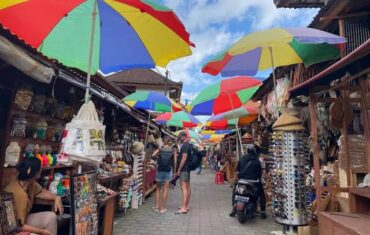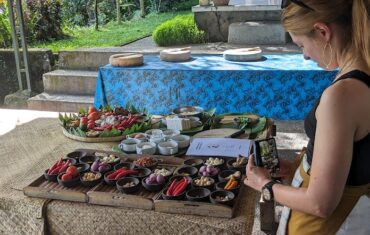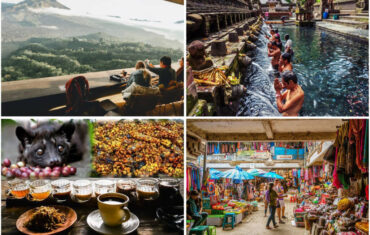Introduction to Balinese Culture
Bali, an island in Indonesia, is popular not only for its natural beauty but also for its rich and diverse culture. The centuries-old Balinese culture offers a variety of festivals and traditional ceremonies that are an integral part of the lives of the local people. Festivals and traditional ceremonies in Bali are not only a place for celebration. But also reflect local wisdom, spirituality, and rich arts.
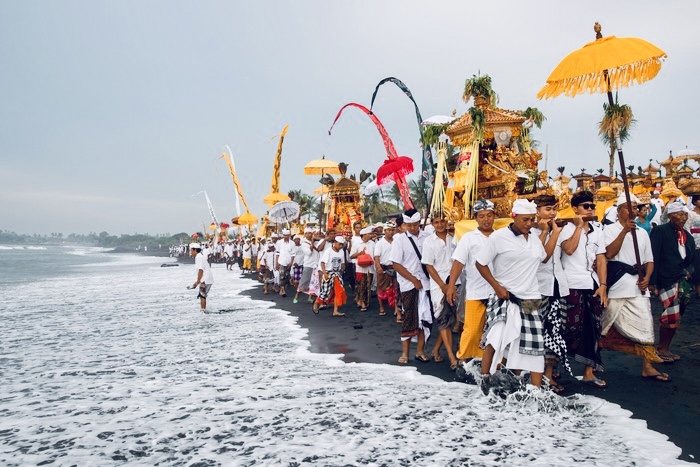
These festivals are often for honoring the Gods, celebrate the harvest, or welcome the changing seasons. Each ceremony carries its own meaning, serving as a means to strengthen the relationship between humans and naturen. Also between humans and the Creator. For example, the Melasti ceremony, which aims to cleanse the spirit and the environment. It is one real example of the Balinese people’s beliefs that deepen the harmony of nature and spirituality.
Tourists visiting Bali often come for witnessing firsthand the festivals and traditional ceremonies in Bali. Which feature a series of traditional dances, gamelan music, and various colorful ornaments. These activities are not only a tourist attraction, but also serve as a means of preserving culture. By participating in festivals and ceremonies, visitors can experience a unique and immersive experience of how Balinese people live their daily lives, steeped in traditional values.
>> Activity list we provide in Bali
Overall, Balinese festivals and ceremonies play an important role in maintaining local cultural identity and providing a deeper understanding of Balinese life. The spiritual and artistic significance of each festival not only enriches the traveler’s experience, but also strengthens the sense of unity among the Balinese people themselves.
Calendar of Festivals and Ceremonies in Bali
Bali, as an island rich in culture and tradition. Also has a variety of festivals and ceremonies that take place throughout the year. Each month offers unique events, reflecting the island’s rich cultural heritage. Here is a calendar of festivals and ceremonies in Bali, arranged in order of months.
- January – March
In January, Bali celebrates the Saka Day, an important holiday in the Hindu calendar. Following this, February is filled with the Bali Arts Festival where local artists showcase their work. March brings Nyepi, a holy day marked by reflection and meditation. This is a time famous as a “quiet” day across the island. - April – June
April is a great time to celebrate Ngembak Geni, as part of the Nyepi celebrations. Next, May is famous for the Melasti Ceremony, where Hindus perform a symbolic cleansing. June features the Ubud Art Market, a popular venue for local artisans to showcase their crafts. - July – October
July and August are for the Bali Arts Festival in Denpasar, where various art and cultural performances take place. September focuses on Piodalan, held at temples throughout Bali. October is marked by Galungan, a festival that celebrates the victory of dharma over adharma, followed by Kuningan a week later. - November and December
In November, Bhakti Day attracts many people with a series of carefully prepared rituals. Finally, December closes with the New Year Festival, which not only celebrates the new year but also celebrates Balinese culture with exciting performances. Each festival and ceremony in Bali provides a unique experience and a deeper understanding of a culture that is full of meaning.
Galungan and Kuningan Day
Galungan and Kuningan are one of the traditional festivals and ceremonies in Bali that are full of spiritual and cultural meaning. This festival is as a commemoration of the victory of dharma (good) over adharma (evil), a concept that is very fundamental in Balinese culture. In this context, Galungan falls on a Wednesday which comes once every 210 days according to the Balinese calendar system. And Kuningan is ten days after Galungan.
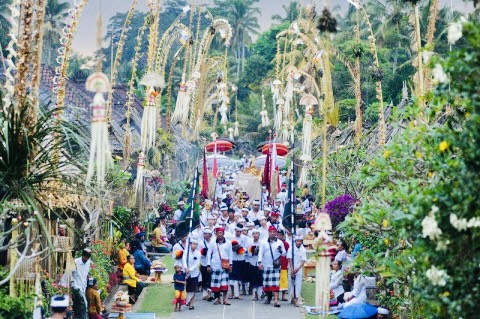
During the Galungan celebration, Balinese people maintain the tradition by decorating their homes with penjor. Which are bamboo decorated with food and leaves on top. These penjor are not merely ornaments, but symbols of offerings to the gods as an expression of gratitude for the gifts given. The community believes that well-decorated penjor reflect spiritual awakening and the distribution of blessings to the family.
Rituals for Balinese Hindus during Galungan also include visits to temples to perform prayers and worship. These visits usually involve the entire family and are a good time to strengthen bonds between family members and exchange news. During Kuningan, people perform prayers again by holding special rituals to ask for forgiveness from the spirits of their ancestors. Which is bringing simpler offerings than during Galungan.
Nyepi or Silent Day
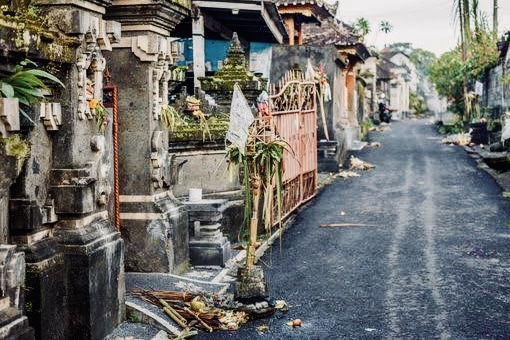
Nyepi Day is one of the most important celebrations in the lives of Hindus in Bali. Literally, ‘Nyepi’ means ‘quiet’ or ‘silent’, reflecting the essence of this holy day which is filled with self-reflection and introspection. On this day, the entire island of Bali transforms into a silent atmosphere, where there is no noise from vehicles, commercial activities, or entertainment. This creates a rare moment that allows each individual to reflect, clear their minds, and focus on spirituality.
Nyepi Day falls on the new year of Saka in the Hindu calendar, and before welcoming it, the Balinese people hold the Ogoh-Ogoh procession. Ogoh-Ogoh are large statues made of bamboo and other materials, usually depicting evil creatures or ghosts. This procession comes with dance and music, and carry around the village. On the night before Nyepi, Ogoh-Ogoh are usually burned as a symbol of banishing evil forces that can disturb the peace and tranquility of the soul. This ritual is an integral part of a series of festivals and traditional ceremonies in Bali that serve to balance the positive and negative energies in the surrounding environment.
During Nyepi Day, Balinese Hindus observe several prohibitions, including not traveling, not using electric lighting, and not carrying out normal daily activities. Overall, Nyepi Day should not only be famous as a day of inactivity, but as a valuable time for self-reflection, channeling good intentions, and increasing spiritual awareness. This moment of silence is an important component in maintaining the rich cultural values and spiritual life of Bali.
International Kite Festival as Bali Festivals and Traditional Ceremonies
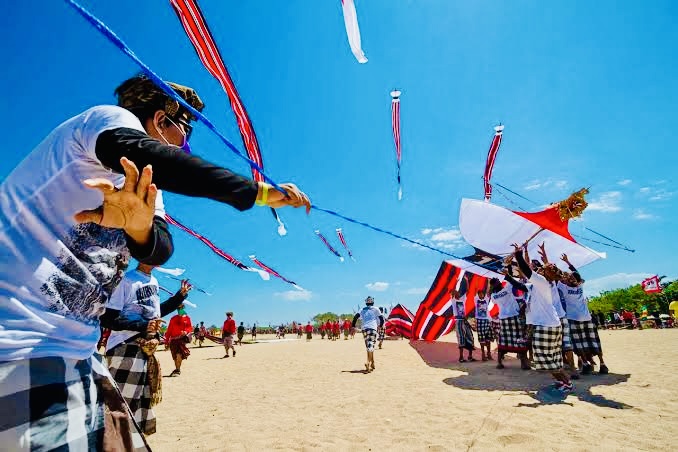
The Bali International Kite Festival is one of the most anticipated events every year. Held during July, the festival held at Mertasari Beach, Sanur has its own appeal for local and foreign tourists. This event is not only a competition, but also a means to showcase the diverse cultures and traditions of various countries.
In this festival, participants from various parts of the world present kites of various sizes and charming designs. The types of kites competed include traditional Balinese kites, fish-shaped kites, to animal-shaped kites and characters inspired by the culture of each country. Each year, this festival presents a different theme, creating a colorful and cheerful visual experience. This is not only a competition, but also a creativity and art competition, which makes this kite festival even more interesting.
The uniqueness of this International Kite Festival is the opportunity to share and exchange culture between participants, spectators, and the local community. During the festival, there are also various traditional Balinese art performances. Such as Kecak dance and gamelan, which further enrich the atmosphere. In addition, visitors can enjoy various Balinese culinary specialties and handicrafts sold by local traders. Also adding a dimension to the comprehensive cultural experience.
Bali Spirit Festival
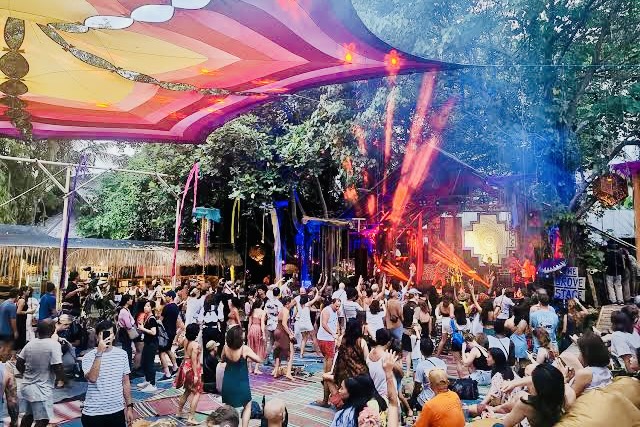
Bali Spirit Festival is one of the most anticipated festivals in Bali, held annually in Ubud. The festival invites thousands of participants from all over the world to celebrate culture and spirituality through various activities, ranging from yoga, music, to dance. In recent years, the festival has become one of the flagship events that attracts many people, both local and international.
One of the main attractions of the festival is the various yoga sessions led by professional instructors from all over the world. Participants have the opportunity to participate in various yoga classes, ranging from beginner sessions to advanced classes, designed to improve physical and mental health. In addition to yoga, the festival also holds various workshops and meditation sessions aimed at deepening participants’ spiritual connections.
Not only focusing on yoga practices, the festival also features various stunning music and dance performances. Various famous artists and local bands collaborate to present an uplifting musical experience, creating an atmosphere full of energy and joy. Thus, the festival becomes a channel for artists to express their creativity while attracting the attention of visitors.
Bali Arts Festival
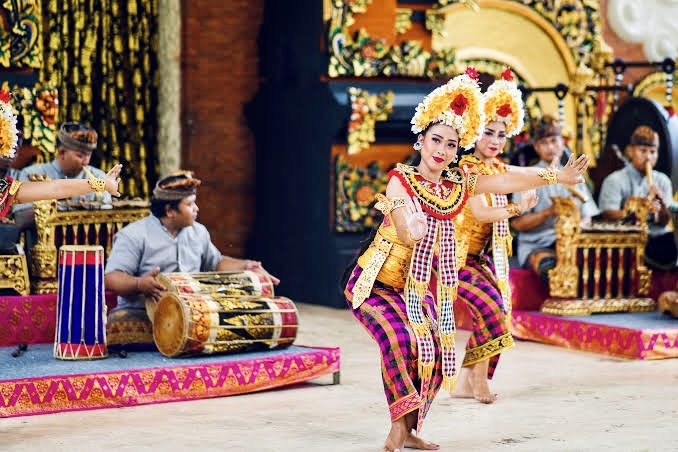
Bali Arts Festival is one of the largest arts and cultural festivals on the Island of the Gods. Reflecting the rich traditions and creativity of the Balinese people. Held annually, the festival invites visitors from all over the world to witness various performances showcasing the beauty of Balinese art. Activities at the Bali Arts Festival include dance, music, theater, and art exhibitions, creating a lively and inspiring atmosphere.
This festival is a place for local artists to showcase their best work. Dance performances, such as the Kecak Dance and Barong Dance. They do not only show the beauty of the movements, but also tell stories of deep spiritual and social values. In addition, traditional music performances, such as gamelan, provide a distinctive nuance that complements the dance performances. Folk theater is also often presented, providing an in-depth experience of Balinese folk tales that are full of meaning.
In addition to art performances, the Bali Arts Festival also features art exhibitions that highlight various aspects of culture originating from this island. Artists can exhibit various types of works, from carvings, paintings, to handicrafts that reflect local beauty and wisdom. This exhibition serves as a means to educate and inspire visitors about Bali’s rich arts and culture, making the festival more than just entertainment.
Makepung Festival and Kuta Carnival
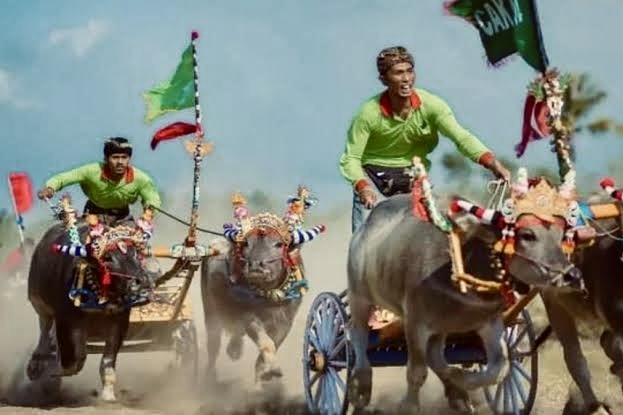
The Makepung Festival in Jembrana is one of the traditional festivals and ceremonies in Bali. Which attracts the attention of both local and foreign visitors. This festival is a traditional buffalo racing event that not only displays the physical strength of the animals. But also the skills and cooperation of farmers in controlling the buffalo. Every year, this festival is held in the form of a competition involving participants from various regions. Creating an atmosphere full of enthusiasm and competition. Spectators can feel the pride of the local community who maintain this tradition. While enjoying the beautiful panorama of the rice fields surrounding the race area.
Meanwhile, Kuta Karnival offers a different but equally interesting experience. Located on the iconic Kuta beach, this festival has become a popular tourist attraction. Kuta Karnival is held annually, featuring various interesting activities such as art parades, competitions, music performances, and a Balinese culinary bazaar. This event is for celebrating Balinese culture and provide space for local artists to showcase their work. The lively atmosphere of the celebration, combined with the beauty of the beach. It makes Kuta Karnival one of the traditional festivals and ceremonies in Bali that you should not miss.
Travel Agency Service Recommendations
When planning a visit to Bali to enjoy festivals and traditional ceremonies, it is very important to choose a reliable travel agency. One highly recommended option is ‘Nagiku Bali’. This service has been widely popular among tourists who want to explore Balinese culture and customs through various tour packages offered.
>> Do you need a taxi service in Bali?
Nagiku Bali provides various tour packages that are specially to make your experience more meaningful. These packages usually include visits to important locations during festivals and traditional ceremonies in Bali. The professional team at Nagiku Bali provides experienced guides, so you can learn the meaning and history of each celebration. With the right information, you will better understand the uniqueness of each festival, such as Nyepi, Galungan, or Kuningan.
In addition, Nagiku Bali also offers important logistical support for visitors. They will assist in planning transportation, accommodation, and other facilities during your visit. This comprehensive support is very helpful, especially for foreign tourists who may not be familiar with local customs and culture. With their help, you can calmly enjoy every moment while participating in festivals and traditional ceremonies.
Choosing to use a travel agency like Nagiku Bali will ensure that your experience in Bali is more focused and enjoyable. You will not only be a spectator, but will also be directly involved in experiencing the beauty of Balinese culture. Invest your time and energy wisely, and let Nagiku Bali organize your adventure amidst the splendor of Balinese festivals and ceremonies.
Conclusion of Bali Festivals and Traditional Ceremonies
Festivals and traditional ceremonies in Bali play a very important role in maintaining and preserving local culture. Reflecting the spiritual values and traditions of the local community. Each festival is a collective expression of cultural identity rooted in the island’s long history. Where Balinese people combine elements of religion, art, and community. By participating in these festivals, we can not only enjoy the colorful beauty of the celebrations. But also feel the depth of meaning contained within.
Through festivals and traditional ceremonies in Bali. The visitors have the opportunity to understand more about how Balinese people live and think. While respecting the ancestral heritage that is still preserved. Activities such as Ngaben, Galungan, and Kuningan, for example. They not only attract tourists but also demonstrate the harmony between humans and nature. As well as between humans and the divine. These ceremonies are a call to celebrate, honor, and remember important days in the Balinese lunar calendar.
Bali Festivals and Traditional Ceremonies
Therefore, we invite every individual to witness and participate in the festivals that we have discussed. The cultural diversity contained in every celebration and traditional ceremony in Bali. It provides valuable insight for anyone who wants to explore the beauty of this island. By admiring the rituals performed and the visual aesthetics offered. Visitors not only enrich their travel experience but also contribute to the preservation of Balinese culture. Come, take the time to experience firsthand the festivals that bring this island to life. Then make them an unforgettable part of your trip.


